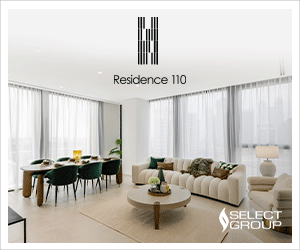Key Highlights:
- Dubai real estate market is showing signs of stability after June 2020 produced encouraging figures of over 570 transactions.
- The secondary property market has also gained momentum as it contributed to 54% of total sales in June.
- The reopening of tourism is expected to play a major role in stabilizing the economy and the real estate sector.
Now that the restrictions enforced by COVID-19 are lifted and life is returning to normal, Dubai real estate market is also witnessing stability. This statement is backed by encouraging figures from June 2020 as more than 570 transactions were recorded per week. It shows a more than 60% increase in sales transactions as compared to the last month.
The main reasons cited for this increase and return of normalcy, apart from the restrictions being lifted, are the reduced prices of property, flexibility shown by the developers, and incentives offered by the government.
The first quarter of 2020 recorded 10,272 sales transactions valuing DH 20.86 billion; however, the number was reduced to 5,560 transactions worth DH 32.49 billion in the second quarter. Although the number of sales transactions in the 2nd quarter was nearly half as compared to the 1st quarter, a fast, V-shaped recovery is on the cards, which is evident from the figures produced by June.
Real estate experts also believe the market is going to accelerate in the coming times due to the much-anticipated global event World Expo 2020. The event, which Dubai was originally slated to host this year, has now been pushed to next year due to COVID-19. With this event, the economic activity in Dubai will significantly increase, having a positive impact on the real estate sector.
Statistics show that the secondary market is on par with the pre-pandemic trends. It accounted for 54% of total sales in June, which is a substantial jump from 28% in April & 33.5% in May. Among the top areas in Dubai, Dubailand, Business Bay, and Dubai Marina witnessed a hike of 8.2%, 6.3%, and 5.9% respectively. Other than that, Town Square with 5.7% and Dubai Hills Estate with a 5.2% increase also remained at the forefront.
For off-plan properties, Mohammed bin Rashid City and Jumeirah Village Circle showed prominence with 15.6% and 11.7% increase respectively. They were followed by Downtown Dubai (9.2%), Business Bay (8.4%), and Dubai South (7%).
As per the CEO of Azizi Developments Mr. Farhad Azizi, the sales significantly dropped from 15 units per day to 1 when the health crises surfaced. However, now the sales per day are showing a positive trend. 5 to 6 units are now being sold by the company. They have also accelerated the pace of their operations to meet the growing demand.
Another change the pandemic brought, apart from the instability in sales figures, is the increased demand for villas and townhouses. Statistics show that these properties experienced a 400% increase since the time Dubai was hit by the novel coronavirus. As people were locked down in their homes, they realized the need for bigger, spacious residences. Coupled with factors such as reduced prices, easy terms by developers and lucrative mortgage offers by banks, demand for villas for rent and sale grew significantly.
Property market experts in Dubai are of the view that the sector is going to bounce back from the crises and adversities triggered by COVID-19 in the coming months. Being one of the prominent investment markets across the globe with safest opportunities, the sector is projected to regain normalcy at a rapid pace. The ROI is also expected to increase.
The resumption of tourism in the country is another positive sign that is going to aid the recovery phase. It shows the world that Dubai is ready to welcome travelers again and has a lot in store for them in terms of travel adventures and lucrative investment/business opportunities.


 Join Our Newsletter
Join Our Newsletter